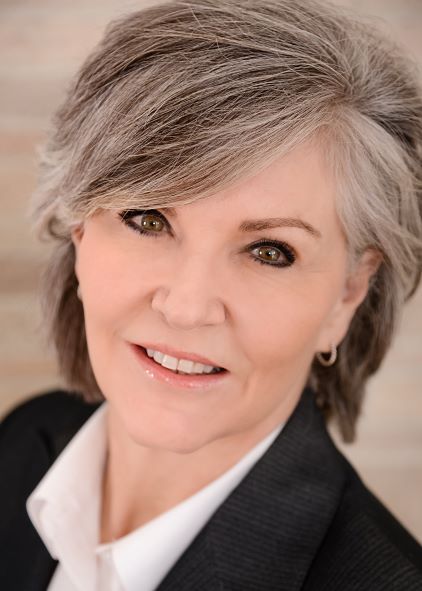 by Barbara Rodgers, NC, BCHN®, NANP Board President
by Barbara Rodgers, NC, BCHN®, NANP Board President
Do you remember the movie, Saving Private Ryan starring Tom Hanks?
It is a poignant (sometimes gruesome) war-movie about trying to save a young man from war and what a small group of soldiers went through to track him down. It’s a movie loosely based on historical events, and I don’t know a SINGLE man who doesn’t love to watch it over and over again. As a woman, I find it incredibly sad and difficult to watch. For me, seeing it once was enough.
Men and women are different, but then you already know that!
This month is Men's Health Awareness Month. Unlike my reluctance to watch war movies, taking a hard look at men’s health (and the research!) right now is something I am interested in and honestly, the subject couldn’t be timelier or more important in my opinion.
NOTE TO THE READER: I’m hoping after reading this, many of you will decide to put more concentrated marketing efforts into drawing male clients into your practice.
Let's look at the facts around men's health...
Men are one of the more under-served groups when it comes to healthcare overall.
We all think (and many men encourage this viewpoint) that they are invincible, rarely need help with anything, and are tough as nails. We all know those big strong guys who love to watch sports on TV, have a beer with the guys and refuse to show emotion no matter what. Sure, that's a generalization, but when it comes to health - machismo is the name of the game for many men!
Some of you may refer to information that shows women may be more prone to illness. For instance, four times more women will be diagnosed with multiple sclerosis than men. But make no mistake, men have many health issues where their gender is more prevalent than women, such as type 2 diabetes, heart attacks and chronic stress, to name a few.
Men are different than women in many areas, but I ask you this: are women generally sicker and more poorly nourished than men?
Hardly.
Here are a few statistics from the CDC:
- 12% of men over the age of 18 are in fair or poor health
- 30.9% of men over the age of 18 had five or more alcoholic drinks in one day
- 36.6% of men over the age of 20 are clinically obese
- 33% of men over the age of 20 have been diagnosed with hypertension and/or taking hypertensive medications
And lastly, from Psychology Today:
- Men make up 75% of suicide victims in the U.S.
- One man is killing himself every 20 minutes
Men may not be asking for help or even acknowledging that they need it, but as practitioners, you need to understand that our menfolk are in desperate need of nutrition counseling.
When I first started my practice in Holistic Nutrition, I wanted to work exclusively with people from the corporate world who were dealing with autoimmune disease. I knew both worlds intimately having had a long-standing career in the securities industry and dealing with multiple sclerosis. So, I intentionally developed a marketing message that would include men because I knew they were suffering with autoimmunity even if they did so quietly.
Men continue to dominate our workforce, so it makes perfect sense that they are feeling huge amounts of stress and little time to worry about their own health. On top of all of that, they also tend to be much less vocal about health or nutritional issues.
Most of my business came from referrals, men and women. They all shared the characteristic that they came to me for nutritional advice when they had "hit rock bottom" – they were desperate to find a solution to their health crisis.
This wasn’t such a bad thing, to be honest. People who are desperate are also very committed to following nutritional recommendations. (As a side note and my best advice to anyone just starting out: I did not accept a new client who was not “all in.” If they weren’t ready for a nutritional over-haul, I did not see the point in wasting my time or theirs).
There were other common characteristics among the male clients in my practice that had me pay special attention to details
- I made a point of being more direct and less descriptive when talking to men
- I spent a little more time giving them facts, statistics and the science behind my nutritional recommendations
- I spent less time discussing feelings
- I allowed more time for questions with my male clients
- I found that they express more skepticism than women will
Most of us have learned the differences of how men perceive the world versus women, either in our personal lives or in business. I believe these things are important to address when working with a male client.
Working in the field of Holistic Nutrition is often an uphill battle. Even though more and more people are acknowledging that fresh whole foods are fundamental to good health, we cannot reach everyone.
Not everyone will come around to the belief that “food is medicine.” That is true with women, and in my clinical experience, an even bigger obstacle with men.
We inspire, educate, and help the people we can.
As we move into a month where we are focused on men’s health, I hope you will assess your own practice to see what you can do to reach out to this important segment of our population.
Men most certainly need the help, and you will have the opportunity to evolve and become more well-rounded within your niche.
Cheers to you, fellas!
